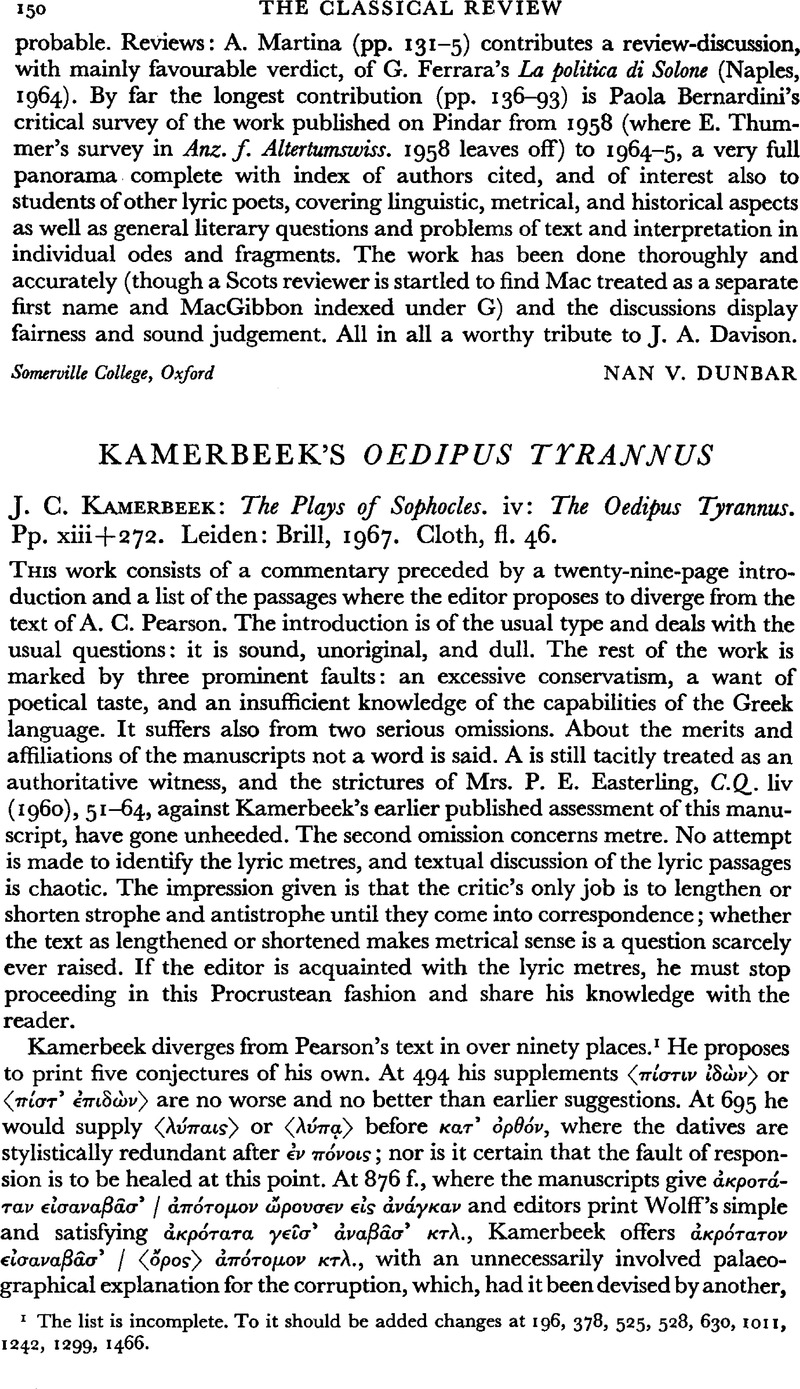No CrossRef data available.
Article contents
Kamerbeek's Oedipus Tyrannus - J. C. Kamerbeek: The Plays of Sophocles. iv: The Oedipus Tyrannus. Pp. xiii+272. Leiden: Brill, 1967. Cloth, fl. 46.
Published online by Cambridge University Press: 27 February 2009
Abstract

- Type
- Reviews
- Information
- Copyright
- Copyright © The Classical Association 1969
References
page 150 note 1 The list is incomplete. To it should be added changes at 196, 378, 525, 528, 630, 1011, 1242, 1299, 1466.
page 151 note 1 Kamerbeek's views on palaeographical probability are remarkable: on 1197–1201, 'a corruption ἐκρὰτησε > ὰκρὰτησας is intelligible, but not a corruption ἀνέστας ≥ ἀνέστα'; 293, ‘One does not see … how δὲδρῶντ’ could have been corrupted into δ'ἰδόντ’. And to demonstrate the extent of his blindness he formulates the only process of corruption he can envisage: ‘≥ δ' ὁρῶντ’ ≥ δ' ἱόν'?'. No wonder he declares it ‘not likely’.
page 151 note 2 I should have expected the pronoun: ὡς 〈σ'〉 ὀδύρομαι κτλ.
page 152 note 1 A similar performance may be witnessed in C.R. lxxx (1966), 259–261Google Scholar, where R. G. Tanner proposes that the universally held view of the syntactical relationship between τὸν ἄνδρα … τοῦτον and τινά (236–8) should be reversed, and that the sense be taken to be not ‘I forbid anyone to entertain the murderer, accost him, or let him share in his religious observances’ but rather ‘I forbid the murderer to entertain anyone, etc’ We may imagine the apologies offered by the intrepid homicide to his disappointed neighview bours: ‘I shall not invite you to join my should domestic worship today. My hands are still reeking with the blood of Laius, and I must be permitted to add sacrilege to regicide by defiling the altars in private.’
1 Cf. Denniston on Eur. El. 497.
2 Cf. Denniston on El. 574. Kamerbeek attempts to introduce an illegitimate example in lyrics at 194: πάτρας ἅπ᾽ οὗρον. For orthodox postponement of the preposition in lyrics see Jebb on 178.


